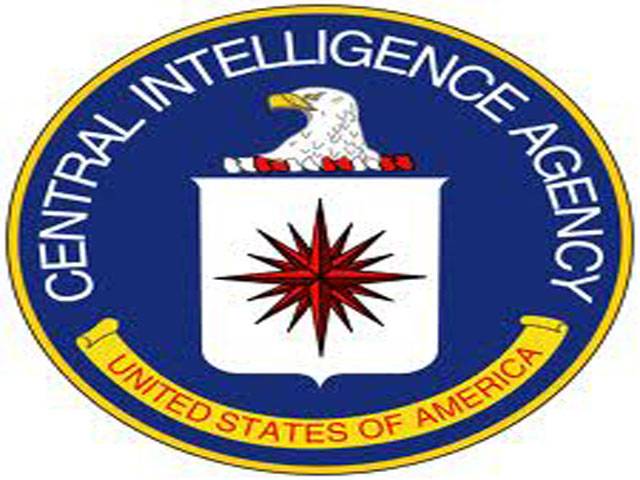NEW YORK - A new book claims that the CIA made a deal with Pakistan that allowed the United States to begin its drone assassination programme in exchange for the murder of an enemy of Pakistan.
In an excerpt in Sunday’s New York Times, journalist Mark Mazzetti outlined how Pakistan, which was resistant to allowing the CIA to begin killing targets within its borders, asked the CIA in 2004 to kill Taliban-ally Nek Muhammad, in exchange for allowing the CIA to begin its drone strike assassination programme in the country.
Pakistan would take responsibility for the death of Nek Muhammad, and the CIA would never be mentioned in official accounts of his death, Mazzetti said.
According to the book ‘The Way of the Knife: The CIA, a Secret Army, and a War at the Ends of the Earth’, Pakistani officials were growing increasingly frustrated by Nek Muhammad, who led a string of successful attacks against Pakistan’s military in the country’s tribal areas over the years. Their attempts to kill Nek on their own had failed, as had a brief truce with him.
“Pakistani officials had, for several years, balked at the idea of allowing armed CIA predators to roam their skies. They considered drone flights a violation of sovereignty, and worried that they would invite further criticism of [then President Pervez Musharraf] as being Washington’s lackey,” writes Mazzetti. However, the military’s intelligence officials finally agreed to allow the American drones into their airspace after then CIA director George Tenet offered to murder Nek in exchange. When a missile blew up Nek’s South Waziristan compound — killing him and several others — the Pakistani military took credit for the deaths. The CIA was never mentioned in any official accounts of the incident, which was targeted killing conducted by an American drone in Pakistan. As we now know, the attack preceded hundreds of similar strikes, though the targets are at least supposed to be people who pose a direct threat to American interests.
Mazzetti goes on to note that CIA’s shift toward the drone programme was prompted by a desire to get rid of its network of secret prisons, which, as an internal report had recently revealed, were rife with prisoner abuse, leaving the agency vulnerable to charges of war crimes, among other things. “[The Nek Muhammad] deal paved the way for the CIA to change its focus from capturing terrorists to killing them, and helped transform an agency that began as a cold war espionage service into a paramilitary organization.”
The CIA had been monitoring the rise of Mr Nek, but officials considered him to be more Pakistan’s problem than America’s, Mazzetti writes. In Washington, officials were watching with growing alarm the gathering of Qaeda operatives in the tribal areas, and George Tenet, the CIA director, authorised officers in the agency’s Islamabad station to push Pakistani officials to allow armed drones. Negotiations were handled primarily by the Islamabad station.
As the battles raged in South Waziristan, the station chief in Islamabad paid a visit to Gen Ehsanul Haq, the ISI chief, and made an offer: If the CIA killed Mr Nek, would the ISI allow regular armed drone flights over the tribal areas?
In secret negotiations, according to the book, the terms of the bargain were set. Pakistani intelligence officials insisted that they be allowed to approve each drone strike, giving them tight control over the list of targets. And they insisted that drones fly only in narrow parts of the tribal areas — ensuring that they would not venture where Islamabad did not want the Americans going: Pakistan’s nuclear facilities, and the mountain camps where allegedly the Kashmiris were trained for attacks in India.
The ISI and the CIA agreed that all drone flights in Pakistan would operate under the CIA’s covert action authority — meaning that the United States would never acknowledge the missile strikes and that Pakistan would either take credit for the individual killings or remain silent, the book says. Mazzetti said, “Musharraf did not think that it would be difficult to keep up the ruse. As he told one CIA officer: “In Pakistan, things fall out of the sky all the time.”
Wednesday, April 17, 2024
CIA ‘secret deal’ paved way for drone strikes

9:06 PM | April 17, 2024
9:05 PM | April 17, 2024
9:01 PM | April 17, 2024
X(Twitter) banned due to company's failure to address concerns, IHC told
9:07 PM | April 17, 2024
Iranian envoy lauds Pakistan's defence capabilities
9:06 PM | April 17, 2024
Ayesha Zafar’s unbeaten 108 goes in vain
9:06 PM | April 17, 2024
Dr Qibla Ayaz steps down as CII chairman
9:05 PM | April 17, 2024
Pakistan and West Indies ODI series commences tomorrow
9:04 PM | April 17, 2024
Rail Revival
April 17, 2024
Addressing Climate Change
April 17, 2024
Saudi Investment
April 17, 2024
Political Reconciliation
April 16, 2024
Pricing Pressures
April 16, 2024
Workforce inequality
April 17, 2024
New partnerships
April 17, 2024
Shikarpur crisis
April 17, 2024
Peace quest
April 17, 2024
Democratic harmony
April 16, 2024
ePaper - Nawaiwaqt
Advertisement
Nawaiwaqt Group | Copyright © 2024





